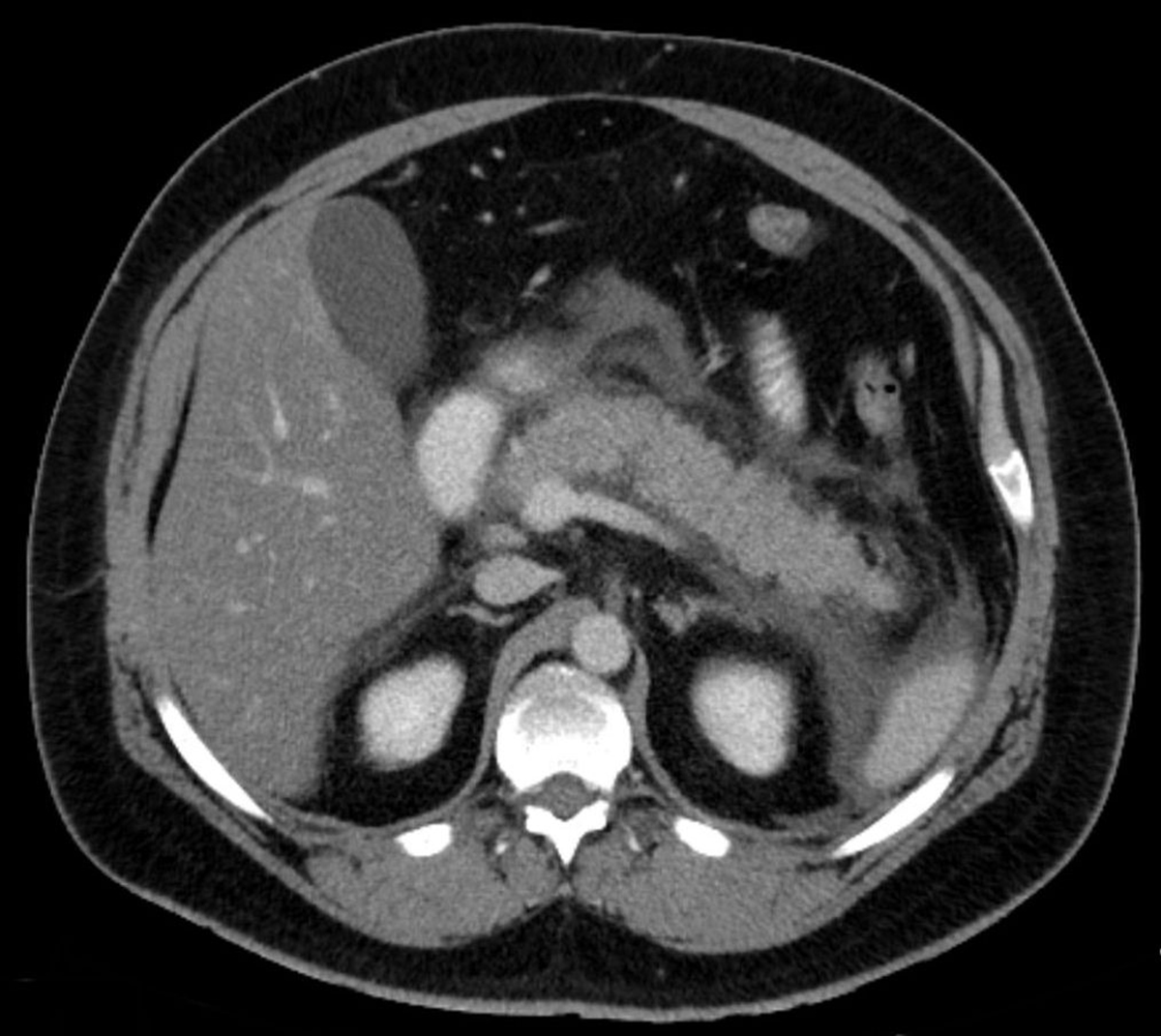
Acute pancreatitis is described as a sudden inflammation and the swelling of the pancreas. Pancreas is the glandular organ situated in the digestive system and plays an important role in the human body. Pancreas produces a number of important hormones such as insulin, glucagon, and Somatostatin, but it also secretes numerous digestive enzymes collected in the so-called pancreatic juice. This liquid is composed of different proteins that catalyze chemical reactions important in the process of digestion. In other words, pancreatic juice helps to dissolve the food and break it into the principal nutrients. Normally, the pancreatic juice leaves the pancreas and enters the small intestines, where it becomes active. However, under certain circumstances, the enzymes from the pancreatic juice become active in the pancreas and literally start “eating” the glandular organ from the inside. This results in swelling and inflammation accompanied by pain.
Signs and symptoms of acute pancreatitis
Patients affected by this condition will typically feel severe pain in the upper stomach. The pain is usually described as a radiating pain, which starts in the stomach and feels all the way through the back. Patients may feel nausea and may vomit. Changes in the blood pressure are also to be expected. The pulse and the respiratory rates are normally elevated. The abdomen may by very tender.
Complications of acute pancreatitis
Inflammation of the pancreas is associated with various possible complications. Pancreas is a gland responsible for production of many important chemicals. If it does not work correctly, the severe chemical changes may affect different functions of the body. Most commonly, the lungs are affected, which results in significant breathing problems. This condition may start the chain reaction for other health problems, since the levels of oxygen circulating through the blood may fall dangerously low.
One of the most important chemicals secreted by the pancreas is insulin. Damage to the cells that produce insulin may lead to diabetes and drastically change the way the body uses blood sugar.
As any other kind of inflammation, the acute pancreatitis will disturb the normal host defense mechanism and leave the pancreas vulnerable to various other infections. Infection of the pancreas is a very serious condition and demands surgical treatment.
Inflamed pancreas is unable to produce sufficient enzymes, which may lead to malnutrition, diarrhea and weight loss. The patient may continue eating normally but the body will typically be unable to extract the nutrients from food.
Acute pancreatitis can also cause fluid retention and formation of cyst-like sacks in the pancreas. These formations are known as pseudo cysts, imposing a great risk of internal bleeding and infection that may occur when the cysts rupture.
- www.nhs.uk/conditions/acute-pancreatitis/complications/
- www.nhs.uk/conditions/acute-pancreatitis/
- Photo courtesy of https://www.scientificanimations.com by Wikimedia Commons: commons.wikimedia.org/wiki/File:3D_Medical_Animation_Acute_Pancreatitis.jpg



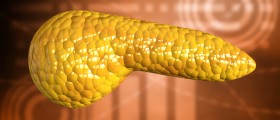

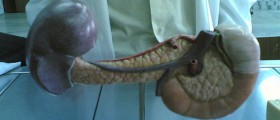


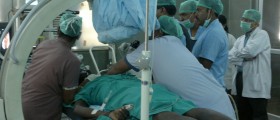

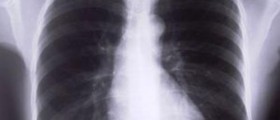






Your thoughts on this
Loading...